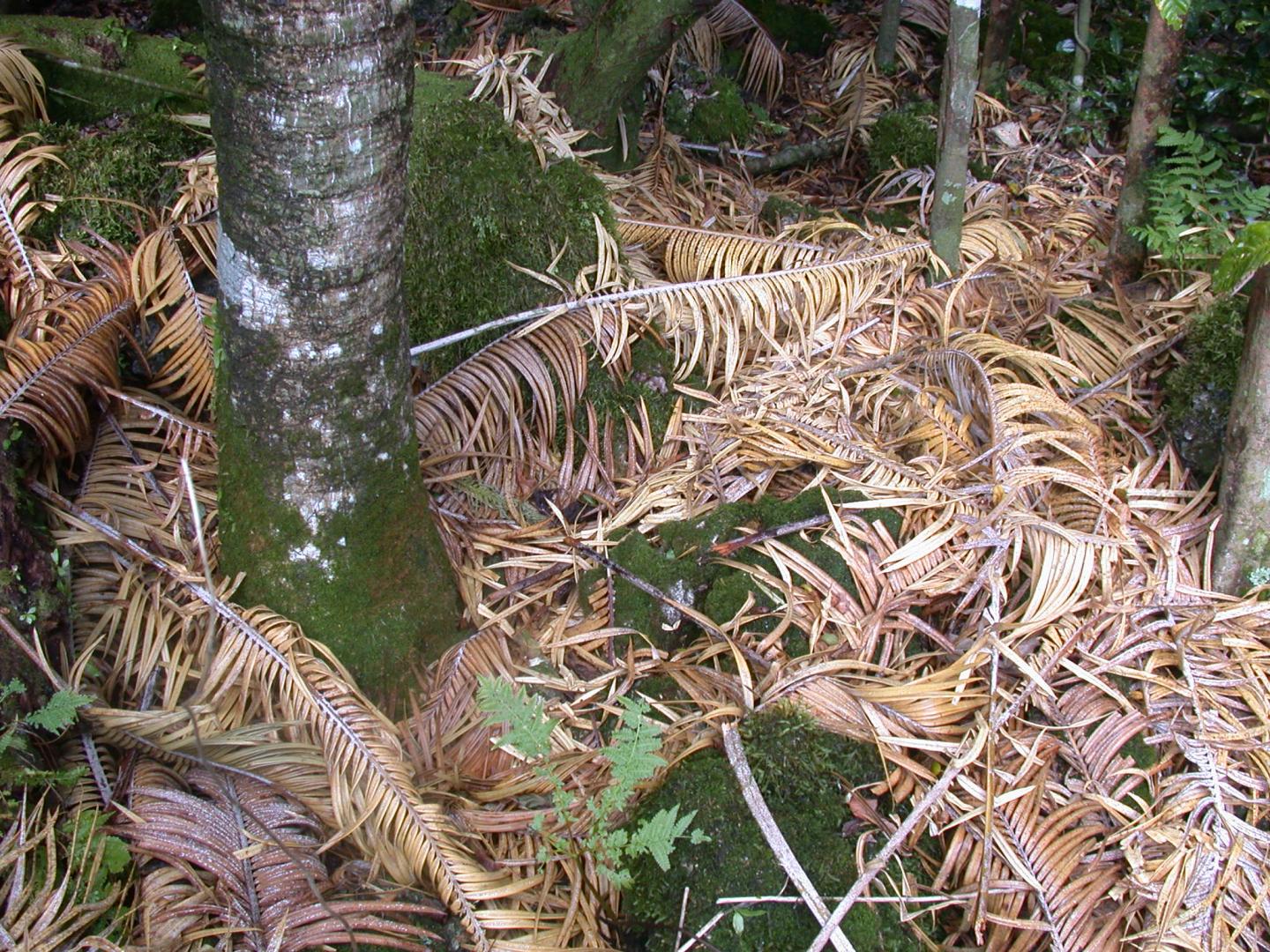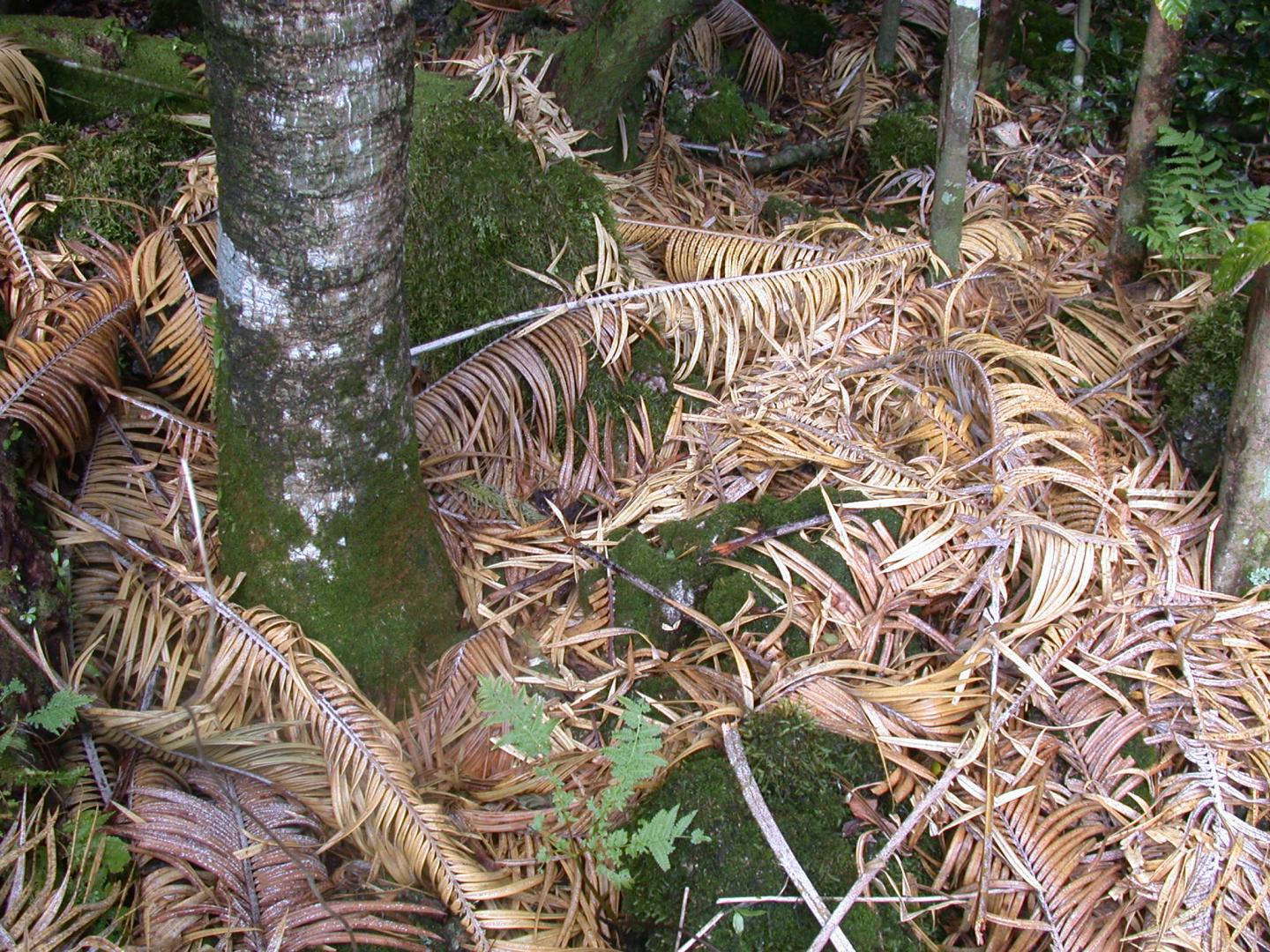
Credit: Thomas Marler
When non-native herbivores invade new geographic regions, the consequences can be devastating to the native plants. Epidemic levels of herbivory damage may ensue because the delicate biological interactions that keep everything in balance within the herbivore's native habitats may be missing in the invaded region.
The island of Guam is home to a native cycad species called Cycas micronesica. This unique plant was the most abundant tree species on the island until the invasions of three non-native cycad herbivores occurred. The vulnerable plant population was reduced by more than 90% within the first decade of damage by the invaders. Recent research by the University of Guam has also shown that changes in leaf chemistry following herbivory may influence ecosystem-level chemical cycling dynamics. The experimental results appeared in the September 2016 issue of the international journal Communicative & Integrative Biology.
Authors Thomas Marler and Nirmala Dongol determined the changes to the cycad tree's leaf litter chemistry following herbivory by the cycad blue butterfly, the cycad aulacaspis scale, and a leaf miner. All three non-native insect herbivores elicited consequential changes in leaf chemistry following herbivory damage.
"All of the elements that serve as nutrients for soil-borne decomposing organisms were altered by the invasive herbivores," said Marler. "In addition, secondary compounds that are known to influence speed of leaf litter decomposition were also changed following the herbivory."
The three herbivores come from highly disparate feeding guilds, so the authors predicted that changes in leaf chemistry would not be similar following herbivory. The experimental results proved the predictions correct, as no consistent pattern was observed among the various chemical traits that were quantified. However, the results revealed that herbivory by all three of the insects modified leaf chemistry in ways that speed up litter decomposition, which predicts profound changes in nutrient turnover rates as a result of the invasions.
This research on one of the most important native plant species in Guam revealed that non-native invaders may change ecosystem-level properties in a manner that augments the obvious mortality of the threatened plant from habitats. The authors contend that conservationists may become better positioned to argue their case if research such as this can illuminate the many ways that a new threat can damage the invaded geographic region.
###
Media Contact
Olympia Terral
[email protected]
http://www.uog.edu





